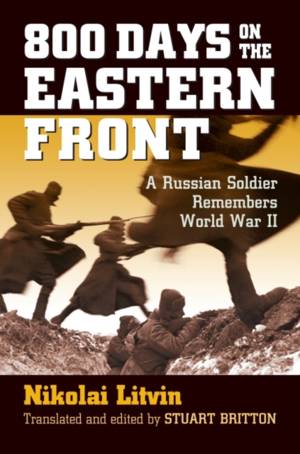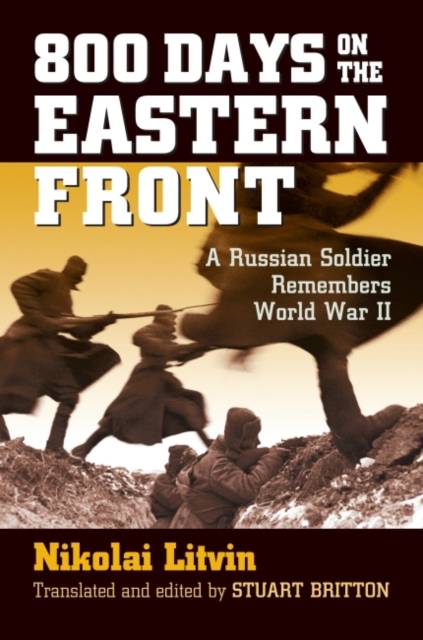
Je cadeautjes zeker op tijd in huis hebben voor de feestdagen? Kom langs in onze winkels en vind het perfecte geschenk!
- Afhalen na 1 uur in een winkel met voorraad
- Gratis thuislevering in België vanaf € 30
- Ruim aanbod met 7 miljoen producten
Je cadeautjes zeker op tijd in huis hebben voor de feestdagen? Kom langs in onze winkels en vind het perfecte geschenk!
- Afhalen na 1 uur in een winkel met voorraad
- Gratis thuislevering in België vanaf € 30
- Ruim aanbod met 7 miljoen producten
Zoeken
€ 50,95
+ 101 punten
Omschrijving
During his 800 days of war, Nikolai Litvin fought at the front lines in the ferocious tank battles at Kursk, was wounded three times, and witnessed unspeakable brutalities against prisoners and civilians. But he survived to pen this brief but powerful memoir of his wartime experiences. Barely out of his teens, Litvin served for three years in the Red Army on the killing fields of the Eastern Front. His memoir presents an unadorned, candid narrative of the common soldier's lot in Stalin's army. Unlike the memoirs of Russian officers--usually preoccupied with large military operations and political concerns--this narrative offers a true ground-level view of World War II's deadliest theater. It puts a begrimed human face on the enormous toll of casualties and provides a rare perspective on battles that were instrumental in the defeat of the German army. Litvin's varied roles, ranging from antitank gunner at Kursk to heavy machine gunner in a penal battalion to staff driver for the 352nd Rifle Division, offer unique perspectives on the Red Army in World War II as it fought from the Ukraine deep into the German heartland. Litvin documents such significant battles as Operation Kutuzov, Operation Bagration, and the German counterattack on the Narev, while also providing unique personal observations on fording the Dnepr River under enemy fire, the rape of German women by Russian troops, and literally seeing his life pass before his eyes as he watched a Stuka's bomb fall directly on his position. And, because part of his duties involved chauffeuring Red Army generals, he also presents revealing glimpses into their personalities and behaviors. Originally written in 1962, with events still fresh in his mind, Litvin's memoir lay unpublished and unseen until translator Stuart Britton and a Russian colleague approached him about publishing it in English. Britton interviewed Litvin to flesh out the details of his original recollection and annotated the resulting work to provide historical context for the campaigns and battles in which he participated. Remarkably free of Soviet-era propaganda, this gem of a memoir provides a view of the war never seen by western readers, including photographs from Litvin's personal collection. An invaluable historical document, as well as a remarkable testament of survival, Litvin's memoir offers unique and penetrating insights into the Soviet wartime experience unavailable in any other source.
Specificaties
Betrokkenen
- Auteur(s):
- Vertaler(s):
- Uitgeverij:
Inhoud
- Aantal bladzijden:
- 176
- Taal:
- Engels
- Reeks:
Eigenschappen
- Productcode (EAN):
- 9780700624430
- Verschijningsdatum:
- 20/01/2017
- Uitvoering:
- Paperback
- Formaat:
- Trade paperback (VS)
- Afmetingen:
- 152 mm x 229 mm
- Gewicht:
- 244 g

Alleen bij Standaard Boekhandel
+ 101 punten op je klantenkaart van Standaard Boekhandel
Beoordelingen
We publiceren alleen reviews die voldoen aan de voorwaarden voor reviews. Bekijk onze voorwaarden voor reviews.









